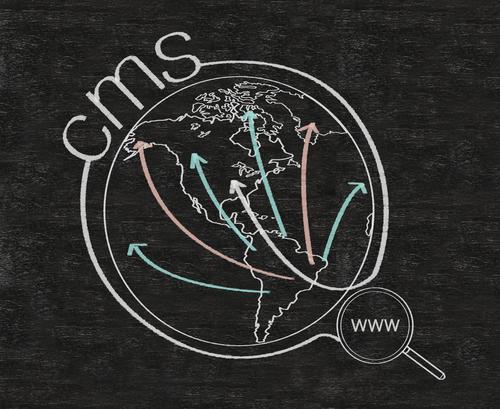Blog
eCommerce CMS: Determining the Best Option for Your Business
DynamicWeb
Wondering what is CMS in eCommerce? Learn how an eCommerce content management solution works, the benefits, and what's best for your business.
Designing and managing an eCommerce website, or websites, can be a monumental task. Businesses today are looking for effective ways to create tailored, lead-generating sites without breaking the bank, crumbling under frustration, or making significant sacrifices along the way. It all comes down to the eCommerce platform and the related Content Management System (CMS) that powers it - aka, how you build your front-end website.
In this guide, we define eCommerce CMS, explain how it works, discuss the benefits, demystify headless CMS, and share our thoughts on choosing the right CMS for your business.

What is a CMS, and how does it relate to eCommerce?
A Content Management Solution, or CMS, is software that makes building and maintaining digital content easy and is most often used for websites. Put simply, rather than coding an entire website by hand, a CMS uses modern methods to enable people to build websites using themes, design templates, and extensions. In the context of eCommerce, a CMS provides a user-friendly interface for businesses to author, organize, and manage content such as product pages, blog posts, landing pages, and more. It also enables web content personalization, powers mobile responsiveness, and delivers impressive brand experiences across channels.
How does an eCommerce CMS work?
An eCommerce CMS is a platform that not only allows users to manage website content but also facilitates the management of online sales operations. While a traditional CMS is focused on content creation, management, and publication, an eCommerce CMS is specifically designed to handle the complexities of selling products or services online. For example, an eCommerce provides the shopping cart functionality needed to build an order, and integrates to payment gateways so stores can accept real payments online. Furthermore, eCommerce CMS is the key to improving online visibility. It simplifies the process of search engine optimization (SEO) by optimizing blogs, news, events, resources, and other rich content.
Key Advantages of an Integrated eCommerce CMS
An integrated eCommerce CMS offers several significant advantages, including:
- Provides the front-end experience for online visitors to engage with your brand. A flexible CMS can enable powerful, design-oriented brand experiences that resonate with customers.
- Enables sellers to provide more meaningful, engaging content besides a product catalog. For example, blog posts, event calendars, content pages, landing pages and more.
- Facilitates Shopping Cart Integration: Provides features that let customers add products to a cart, modify quantities, and proceed to checkout, making the sales funnel smooth and effortless.
- Enables SEO & Marketing Tools: Features are designed to optimize product listings for search engines, along with tools for email marketing, social media integration, and possibly even affiliate marketing.
- Features Responsive Design: Ensures the website is optimized for mobile devices, tablets, and desktop browsers so that you can automatically present your content in the most favorable light.
- Provides Multilingual Support: Supports multiple languages and currencies for businesses selling to international markets.
- Offers Customizable Templates: Offers customizable design templates to ensure the eCommerce store aligns with brand identity.
- Enables Extensions and Plugins: Many eCommerce CMS platforms have marketplaces for plugins or extensions, allowing for added functionalities as the business grows.
Headless CMS
Not all eCommerce strategies require using a solution with a built-in CMS. With a headless eCommerce solution, businesses can have the freedom and flexibility to deploy their eCommerce tools to a headless CMS or interface of their choice. This can make it easier to make changes to the front-end designs or back-end eCommerce functionality without making changes to the other. Headless CMS is most suitable for businesses that manage multiple data sources and multiple digital channels because it can support the complexities and need for independence. Businesses that opt for a headless architecture typically do so because they need to quickly adapt to changes in the marketplace, want to deploy their eCommerce functionality to multiple apps or interfaces, and meet ever-evolving customer needs.
Learn More
So, what is the best CMS for eCommerce? Ultimately, your choice of eCommerce and CMS solution depends on your overall business strategy, resources, and long-term goals. To explore all your options, including built-in CMS or headless, contact DynamicWeb today.